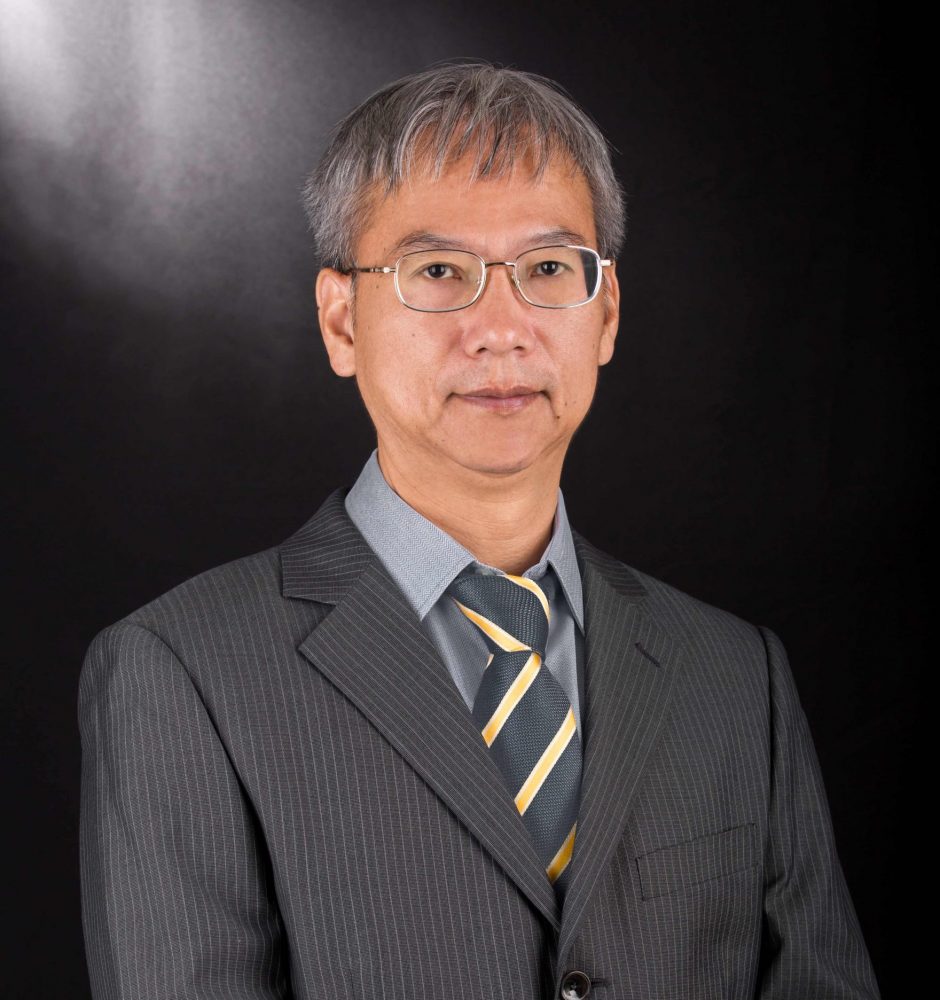U.S. President Donald Trump recently announced a significant increase in tariffs on imports from Canada and Mexico, with tariffs on automobiles and auto parts reaching as high as 25%. This move is said to be aimed at promoting the return of manufacturing to the U.S. while reducing the trade deficit. However, in reality, it may trigger a series of profound negative consequences.

3917 1026
KK 306
- Ph.D., M.A., The Pennsylvania State University
- B.S., University of London
- Honors Diploma, Hong Kong Baptist College
Dr. Stephen Y CHIU received his undergraduate education in Physics at the Hong Kong Baptist College, and graduate education in Economics at the Pennsylvania State University, where he obtained his Ph.D. degree in 1995. He had since taught at The Chinese University of Hong Kong until he joined The University of Hong Kong in 2002. He has been the principal investigator of seven competitive earmarked grants, and was a Research Fellow in the Hong Kong Institute of Monetary Research during the summer of 2001.
Steve is a theorist and has written papers in different areas of Economics. He likes models in which decision makers have non-negligible effects on the environment where they situate. He has published a few papers on bargaining. In one paper, the widely used solution concept Shapley value is implemented as the unique outcome in a non-cooperative game under the least restrictive conditions. Two other papers clear up the profession’s confusion on two concepts in bargaining theory — threat point and outside option, providing important insights into the implications of the now influential property rights approach of firm theory. He has also written papers on the micro-foundations of currency crisis, examining the issue of multiple equilibria in more realistic models of currency attacks. More recently, he has worked on problems such as contract design, college admissions, and demography and political economy of reform, motivated by a contrast between China and Russia in their demography and reform experience.
For leisure, Steve enjoys hiking, reading and tai chi.
- Contracts and Organizations
- Applied Theory
- Political Economy
- “Task Interdependence and Non-Contractibility in Public Good Provision,”
(with Bin R. Chen), Journal of Institutional and Theoretical Economics, vol 170(4), 2014, pp. 731-748. - “Interim Performance Evaluation in Contract Design,”
(with Bin R. Chen), Economic Journal, vol 123, issue 569, June 2013, pp. 665-698. - “Conglomerate Merger Control: From the Continents to a Small Economy,”
(with Jessie Xinyu Wang), Frontiers on Law in China, vol. 8 (2), June 2013, pp. 304-334. - “Bargaining, Competition, and Efficient Investment,”
(with Kalyan Chatterjee), Bargaining in the Shadow of the Market: Selected Papers in Bilateral and Multilateral Bargaining, (pp. 79-96), edited by Kalyan Chatterjee, World Scientific Press, 2013. - “Competitive Bidding with a Price Floor,”
(with Bin R. Chen), International Journal of Economic Theory, vol 7(4), December 2011. - “To What Extent Defining a Group Predicates on Defining Other Groups?”
(with Weifeng Zhong), Procedia-Social and Behavioral Science Journal (Elsevier), vol. 30, 2011, pp. 1672-1682. - “Public-Private Partnerships: Task Interdependence and Contractibility”
(with Bin R. Chen), International Journal of Industrial Organization, vol 28 (6), 2010, pp. 591-603. (int contribution: III.8) - Game Theory and Economic Modeling,
(in Chinese, with Pu Yongjian), the Renmin University Press, 2010. - “Endogenous Preferential Treatment in Centralized Admissions”
(with Weiwei Weng), Rand Journal of Economics, 40(2), Summer 2009, 258-282.(int contributions: III.1) - “When Does Competition Lead to Efficient Investments?”
(with Kalyan Chatterjee), The B.E. Journal of Theoretical Economics, vol. 7 : 2007, Iss. 1 (Topics), Article 27. - “Noncooperative Bargaining, Hostages, and Optimal Assets Ownership,”
American Economic Review, 88(4), September 1998, pp. 882-901
Household spending is a key factor in personal and family financial planning, as well as policymaking to improve people's livelihoods. While the government's Consumer Price Index (CPI) is a mainstream indicator, it often fails to accurately reflect the daily living costs of the public. CPI has limitations, such as over-emphasising non-essential goods and services (e.g. Rental expenses and furniture), and people's subjective inflation perceptions tend to be higher than the actual data.
Household spending is a key factor in personal and family financial planning, as well as policymaking to improve people's livelihoods. While the government's Consumer Price Index (CPI) is a mainstream indicator, it often fails to accurately reflect the daily living costs of the public. CPI has limitations, such as over-emphasising non-essential goods and services (e.g. Rental expenses and furniture), and people's subjective inflation perceptions tend to be higher than the actual data.
Can money make the world go around? Do economic gains always drive people to make rational decisions? We have too little time for too much information and people usually rely on their intuition to make choices.
Can money make the world go around? Do economic gains always drive people to make rational decisions? We have too little time for too much information and people usually rely on their intuition to make choices.
When economists conduct research on certain topics, they often face challenges in collecting data from real-life situations, that meet the ideal conditions of a randomised controlled experiment. However, if randomised controlled groups exist in real-world scenarios, they would present valuable opportunities for study. Many hypotheses, such as the idea that intellectual property laws boost the opera industry can be proved in such analysis.
When economists conduct research on certain topics, they often face challenges in collecting data from real-life situations, that meet the ideal conditions of a randomised controlled experiment. However, if randomised controlled groups exist in real-world scenarios, they would present valuable opportunities for study. Many hypotheses, such as the idea that intellectual property laws boost the opera industry can be proved in such analysis.
我們習慣認為自己的行為是理性、合乎邏輯,而且是經深思熟慮的,但現實上,我們的行為往往是「不經大腦」的,有許多盲點,甚至受到誤導和操縱而不自知。
我們習慣認為自己的行為是理性、合乎邏輯,而且是經深思熟慮的,但現實上,我們的行為往往是「不經大腦」的,有許多盲點,甚至受到誤導和操縱而不自知。
前不久香港發生一宗命案,其駭人聽聞程度不下於任何經典驚慄片。才華滿溢、資金豐厚的電影製作人,不論如何絞盡腦汁,其創作不見得一定比真實世界奇異精采,很多時反而是從現實世界中找尋獨特的元素,經整理鋪陳後呈現於觀眾眼前。觀眾覺得可觀,往往因為不曾經歷的新鮮感而已,其實現實世界才是電影精采情節的泉源。經濟學家提出各種經濟理論,其貢獻在相當程度上也源於自身的實際經驗,或事後對實際經驗的總結。本文將分享一些現實生活的例子,以及經濟學家所作的檢視。





